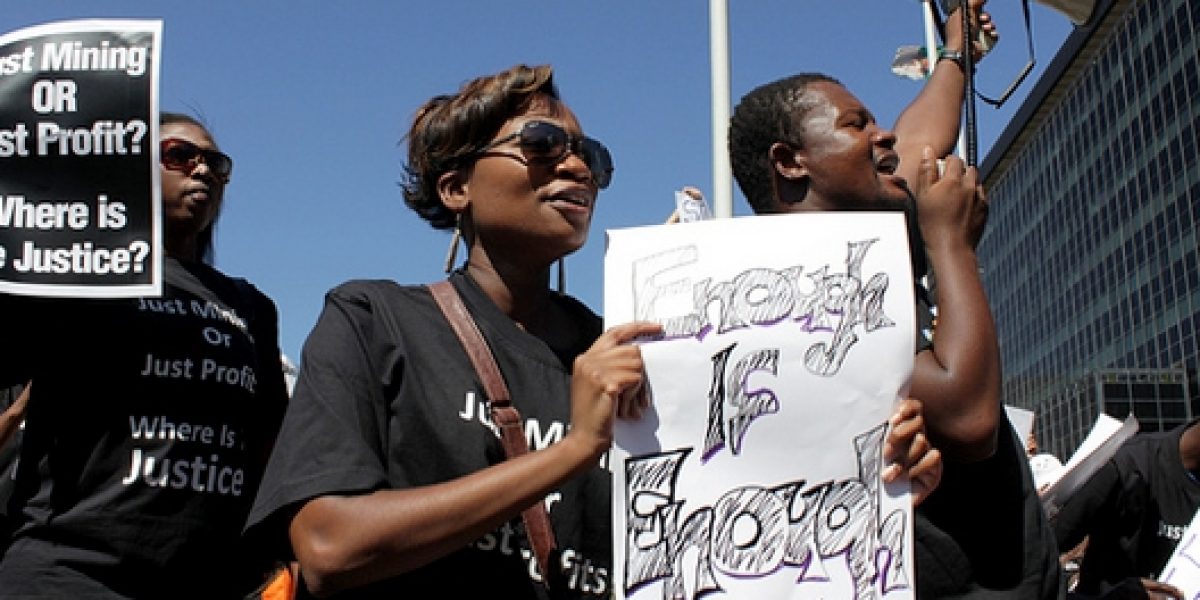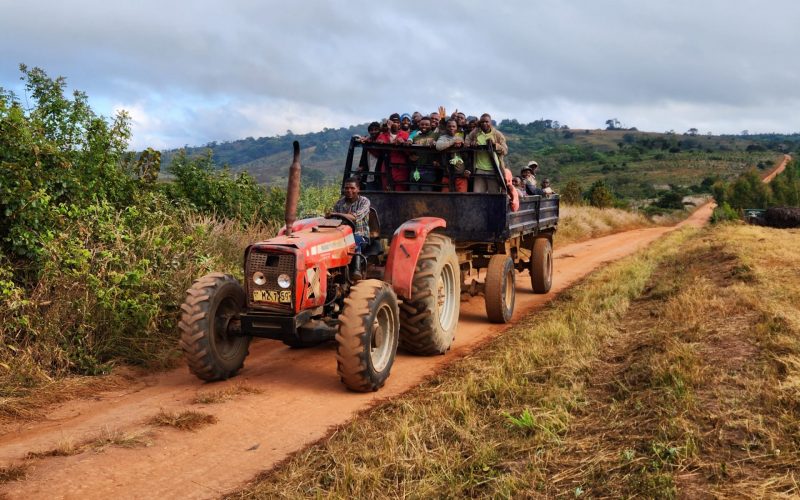The experience of the annual Mining Indaba divide in Cape Town is highly relevant to this discussion. Every February, the main Mining Indaba (led by industry and government) convenes in near complete isolation from the Alternative Mining Indaba (dominated by civil society). To bridge this divide and promote more informed, inclusive dialogue among extractive stakeholders in communities, government and the private sector, a ‘new normal’ in extractive governance is needed.
This must involve a move by both economic and social stakeholders away from their entrenched positions, which have forestalled meaningful extractive sector reform. The Indabas are fundamentally focused on sustainable livelihoods and the industry’s role in creating prosperity.
Yet, both sides differ radically in their approaches and emphases. This needs reconciling to help bridge the divide through an inclusive, action-oriented dialogue.
One such discussion was organised by Chatham House in London, last month (on 16-17 March 2015) where African ministers, industry leaders and experts dissected the theme of: ‘Democratisation and Decentralisation: How is Societal Change in Africa Affecting Extractive Industries?‘
Two of the key questions discussed include the challenges of inclusive resource governance and managing stakeholder expectations towards more sustainable development outcomes in the sector.
Effective management of stakeholder expectations about likely benefits is crucial. This issue is central to how extractive investors deal with growing demands and pressures on the industry in a low commodity price environment. Indeed, a new model of extractive development is needed, which should be championed by the industry itself.
This must be anchored in transparency and openness. It requires that extractive project valuations incorporate both direct costs and externalities from the outset. It is an approach that can help to demonstrate to all stakeholders how they are getting a fair share from extractive proceeds in a tougher business climate marked by low trust among social and business stakeholders.
South Africa’s experience amply illustrates this. The mineral resources minister, Ngoako Ramathlodi, succeeded in ending the protracted platinum strike in 2014 by persuading companies to open up their accounts to the striking union as part of a new approach to the deadlocked wage negotiations.
Similarly, reactions to a recent WWF report on the economics of shale gas development in South Africa revealed that opponents of shale exploration may tolerate a limited form of it. Their key precondition is that the shale gas industry takes full account of its environmental impact and other externalities, reveals offset and compensation plans, and demonstrates transparently how these additional costs will be incorporated upfront in project valuation.
Towards a new normal
What is needed practically for corporate actors and communities to be a part of a more inclusive and socially responsive extractive model? It requires partnership based on respect and understanding, transparency and good communication, as well as upfront clarification of stakeholder expectations.
This new approach will promote mutual trust, support and empathy among all the extractive stakeholders. Communities for their part must acknowledge that extractive activities form the bedrock of many African economies despite their increasingly diversified outlook.
For the mining industry, this ‘new normal’ requires a profound shift of mindset beyond the piecemeal transformations of recent years. Corporate leaders must be at the forefront of championing this change, consciously re-writing sustainability into the DNA of the industry. The ‘new normal’, in its essence, is a call to action for both business and communities to engage on how to succeed together, exploring the mutual sacrifices required.
At a minimum, this will allow social stakeholders to understand the current state of industry and open up avenue for synergies, from preparing shared infrastructure investments to positioning economies better to capitalise on the next commodity boom.
Furthermore, the case for a ‘new normal’ also needs to be internalised by all actors, especially business leaders. The merits of a more socially responsive investment model needs to be better recognised and articulated because it ultimately makes better commercial sense.
To illustrate, several studies have shown how social and environmental considerations enhance business performance. One recent survey by ERM, an environment consultancy, shows that only 30 percent of large extractive projects are delivered on schedule. The main causes of delay are environmental concerns (35%) and social opposition (42%). Commercial reasons are cited only in 35% of these delays. What this shows is that better alignment of the social and environmental case with a business bottom-line is optimal.
Corporate leadership in sustainability
In practical terms, extractive companies require more people with good understanding of local development issues and the broader global context to fill strategic business leadership positions. Many companies are showing remarkable progress in this area whilst some are already going the extra miles. However, strategic thought leadership on sustainability is key, including through exploring opportunities to blend public and private sector flows for development ends.
For example, on implementing the African Mining Vision (AMV) and the AU’s Agenda 2063, shared public-private ownership and implementation of these initiatives is needed to support Africa’s plans for sustainable structural transformation. Mobilisation of African funding has been highlighted as a key implementation challenge for the AMV during the African mining ministerial retreat in Victoria Falls and Livingstone in November 2014.
The extractive industry in Africa must come to the party to help promote the AMV as active participants. More than that, the industry must embrace the AMV and Agenda 2063’s key precepts towards anchoring the sector within a coherent vision of African development.
For the longer term, the dangers of over-reliance by African governments on extractive resources have been laid bare by the latest commodity downturn.
Excitement over the ‘resource boom’ neglected the lack of inclusion in Africa’s recent growth, and the tension inherent in large foreign reserves accumulated via mineral exports even as economic diversification proved elusive. African minerals exported for processing in China and others emerging markets act directly to squeeze the margin for value addition in Africa. It is an important lesson that must inform regulatory actions in the new low price environment.
Falling commodity prices can also motivate governments to improve regulation and the business climate to attract a shrinking investment pool or lead to further dilution of environmental and other standards to court investors. The former course of action will help promote positive partnership for better governance in the sector.
Successful partnership on extractive governance also requires progress on addressing Illicit Financial Flows (IFFs). The work of the AU High Level Panel on IFFs needs broadening to include flows that are not necessarily illicit but morally questionable, what one might term “grey finance”.
Examples include Base Erosion and Profit Shifting (BEPS), and underpayment of taxes by powerful elites. How well social and economic stakeholders manage these and other processes will determine the future of sustainable extractive development in Africa.








